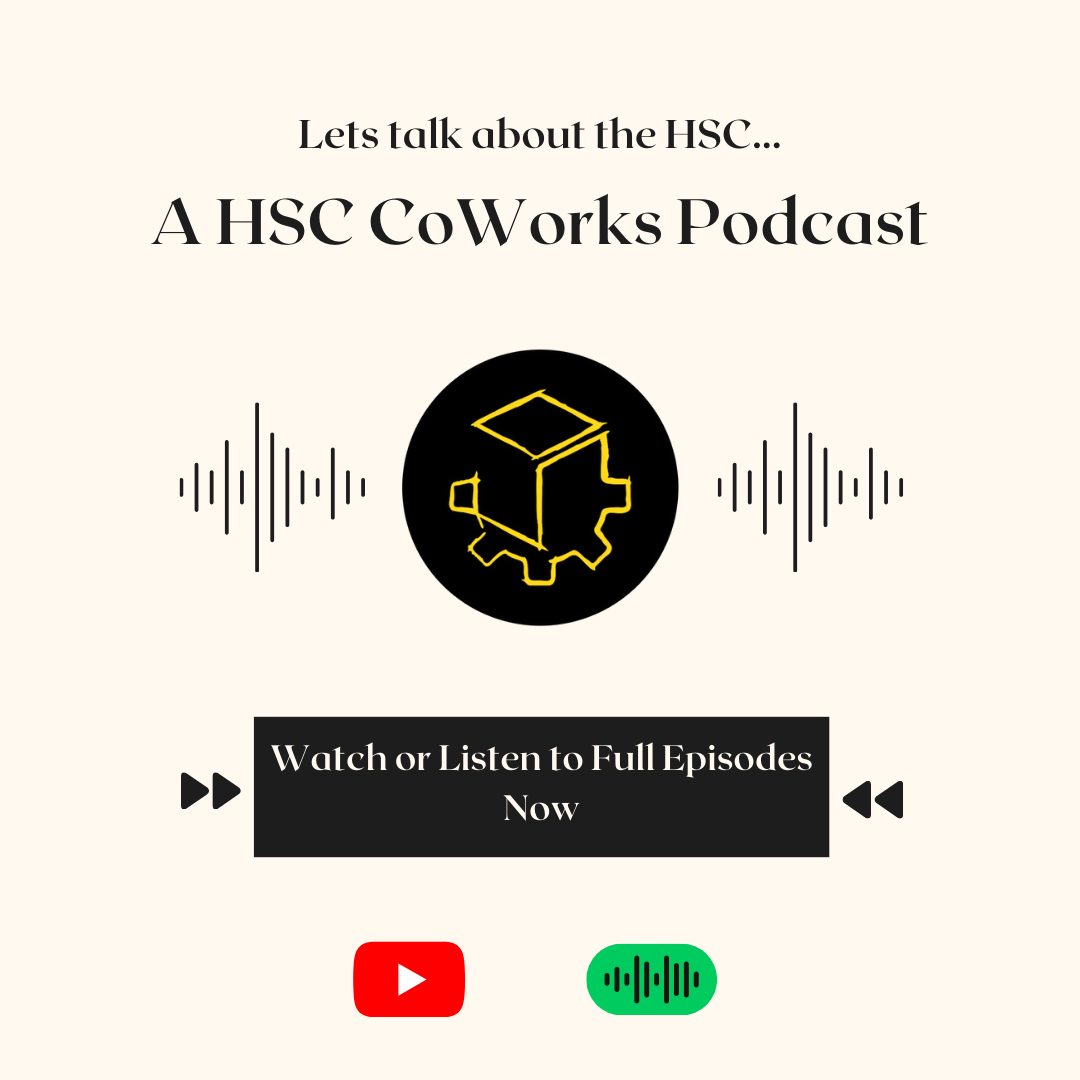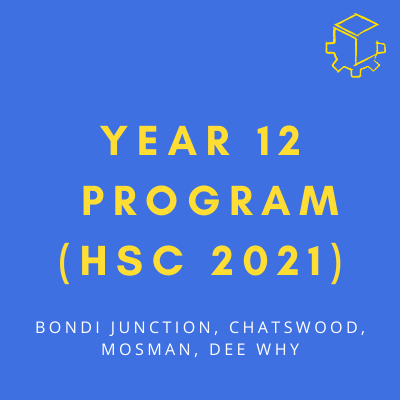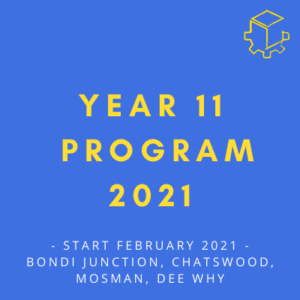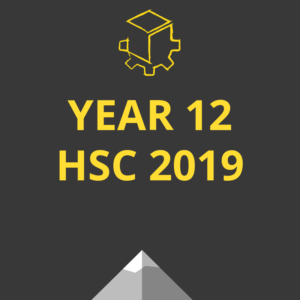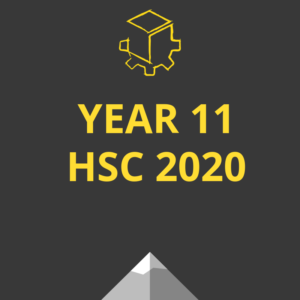Two of our high achieving coaches have put together some gold tips for the HSC CoWorks students over the Christmas holidays.
Whilst students excelled around us, our HSC term 4 was not as successful as we had both hoped. Overall, we didn’t achieve the results we had desired. This happens, and whilst it was tempting to sit back, relax and forget our results we both felt that it was important to catch up to the rest of our peers. Surprisingly, we both confer that, at this early stage, lost ground is probably the easiest to catch up on over the course of the rest of the HSC year.
At this point, you should know what you want to achieve. If you don’t, find out! This is crucial because the moment you know what you want, you have some sort of a goal, and this goal – no matter how clear (or unclear) it really is – will provide some sort of incentive for you to study. For instance, our esteemed and highly regarded tutor, James, had no understanding of what he wanted to do when he finished school at this stage but, being the overachiever that he is, knew that he wanted an ATAR over 95. Of course, it’s not the end of the world if you fail to achieve this goal, but it gives you some direction and understanding of the level of commitment that is required of you in your studies.
So lets look at where you’re currently at. You have had an 8-10 week term where you’ve learnt approximately 25% of what you need to know and you now have 6-8 weeks off school – where you should definitely take time to relax – but allocate some time to study regardless of how well you did in Term 4 (we can’t stress this enough, how well you did is irrelevant to your study regime!).
Believe us when we say this, you will be thankful for the study you have completed now when trials comes around because allocating time to study the content you have recently learnt will be very difficult in the upcoming school terms. Also, a brief pointer from Mathematician McGowan: At this stage, progress is a lot easier to make in the sense that one hour of study/revision now will cover a far greater percentage of the content that you are required to know than, let’s say, when you’re studying for the trials or the dreaded HSC. So we come to the point that you’ve probably been waiting for: What should you actually do over this break? Well, after some intense discussion and much convincing Peter that he was wrong, we have managed to decipher a list of tips for the bare essentials of starting the road to achieving HSC success and catching up on any lost ground.
In no particular order of priority:
1. Attempt at least TWO Discovery reading tasks:
This would be one of the most important tasks to complete over the holidays. Whilst finding a related text or completing holiday homework are both important, reading task analysis is a skill, improved only through constant practice. And with the guarantee that a reading task will come up in both your trials and final HSC exams at least, you must ensure you are completely comfortable analysing unseen texts. Attempting them however is only half the job, utilise the online marking service and/or the tutors at the office to mark your work in order to understand your weaknesses and continually improve your analytic technique.
2. Maths revision! (if you do any maths):
Everybody loves to study a bit of mathematics. Seriously, you’ll soon find that maths is your best friend when you study because it’s genuinely so easy to do. All it takes is a few past papers and a bit of a skim over the chapters of your text book that you’re a bit/very rusty on and you’ll be sorted for the exam. As somebody who achieved a band 6 in 4 unit and 3 unit, I can promise you that there is nothing much more to it than this. *Please keep conscious of the amount of time you dedicate to maths! It may sound strange now, but many people (myself included) fall into the ‘maths trap’ where they dedicate too much time to studying maths – not because they need to – but because they’re lazy and don’t want to study anything else. As the expression goes “when you don’t feel like studying anything, study maths”… not at HSC Coworks
3. Do any homework that teachers have designated for you.
This is an obvious one and at this stage of your schooling careers we hope you understand why.
4.Know any and every case study required of you well!
Know it inside out, like the back of your hand, and any other cliche that refers to somebodies level of familiarity with something. This is something that you will unquestionably be examined on at pretty much every assessment that you have for that subject so it’s very important to know. Also, a word from master Jesse: Form/shape an opinion of any relevant information to that subject and it’s subtopics. For instance, in economics, whats your viewpoint on the current status of the Australian Economy and where it’s going in 2014 – Why/What lead to this conclusion? If you do Business Studies, get to know two or three businesses inside out. *Legal studies may not have any specific case studies as such, but please find any legislation/media articles/court cases/NGO activity that is relevant to your topics and then use them to shape an opinion of the current issues/flaws/strong points of the legal system.
5. Look for any related texts/brush up on the ones you’ve currently chosen.
Please guys, don’t fall into the “she’ll be right” trap and suddenly cop on to the fact that you need a related text or two 3 weeks out from your half yearly. Right now is the perfect time to absolutely nail your analysis for your related text(s) (preferably have 2-3). Don’t make the mistake in thinking that being strong on your prescribed text is enough to get a good mark. No, your prescribed text is only half an essay – to get the high band 5 – band 6 range it is essential you have a good related text analysis.
6. Major Works!!!
Anybody that is doing a major work absolutely must capitalise on this time. As well as making serious progress on your actual piece/art work/performance etc it is essential that you use this time to catch up and get ahead on your portfolio. Why? Because, as much as it sucks, these things are due around the time of trials. So, get a move on with it and save yourself some stress down the track! If you are in Sydney on January 14th and January 17th Alex Galego will be mentoring students around their major works at the Bondi Office. Check out his blog post for more information.
7. Finish a Discovery Creative Piece:
A common mistake made by students is not valuing the creative writing section equally as the other two sections of Paper 1, often leaving it until the last minute and then complaining after receiving a poor grade, a mistake I made myself (Peter). Building your creative piece now will allow you to continually refine it through the HSC online marking service or other appropriate resources, ensuring you achieve that A range result. Moreover, these holidays provide the opportune time to be creative, ideas do not develop overnight, it may take a few days or weeks but ultimately it is much easier when you are relaxed. And most importantly, once you have a proven story you will be able to use it for your Trial and HSC final exams with confidence.
8. Reading your texts:
A lot of students will not read their texts and resort to synopsis’ instead. This will ultimately disadvantage you as, especially with English Module B, a close understanding of the text is needed, which can only be formed by reading and developing your own viewpoints of the text. More simplistically, reading each text may actually enhance your interest of the subject area.
9. Go to a Production of your text or get the movie version
If you’re really having difficulty getting you’re head around Hamlet, or the only thing that you’re getting out of the play Julius Caesar is that Brutus is mates with some bloke named Cassius, then do yourselves a massive favour and get the film version or go to the production. Better yet, go to the No Fear Shakespeare website and just read the deciphered version. It isn’t perfect as some areas are open to interpretation, but it certainly helps get through the hardest read of your life. *This is especially relevant to plays because things like stage movement and context can be a lot more easily understood, noted, and analysed. **Please watch the movie/production with your book and follow on – maybe for you English nerds out there make a note of what you thought you would have done differently/contradicted the original text.
10. Revising Term 4 Topics:
Reviewing and revising your term 4 topics is vital to your HSC campaign further down the track. By the time you reach your trials you will be overloaded with topics to revise and most of the topics from term 4 will likely be at least partially forgotten. Establishing detailed yet clear summaries will counter this, ensuring you recall the specifics which enable you to attack practice HSC questions. Moreover, some HSC subjects assume that preliminary topics are known knowledge, hence reviewing over some of this material would also be advised if relevant. When your final HSC results arrive you want to have zero regrets about the amount of effort you put into your HSC campaign. Putting a tick next to these items will put you in a great position to have no regrets going into the start of Term 1, 2014.
Will you be designing it or buying it one day? Either way you’ll be winning. #hsc2016comeatme #hsc2016 #creatingmypath A photo posted by Motivate My HSC (@motivatemyhsc) on
Merry Christmas, and have an enjoyable but productive holiday.


